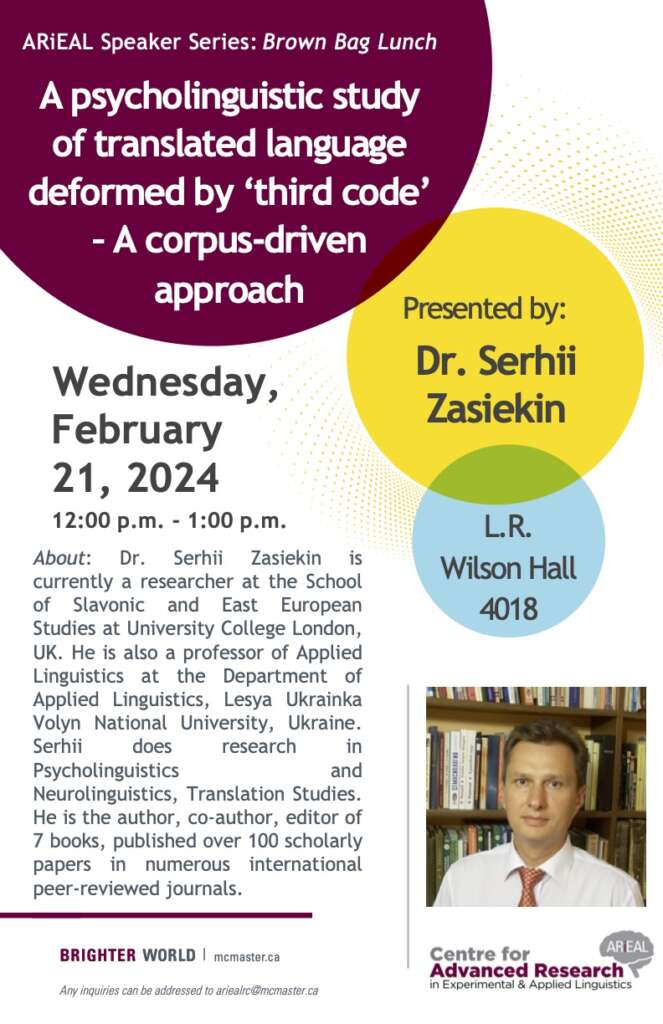Please join us for our third Brown Bag of the semester!
Dr. Serhii Zasiekin, a researcher at University College London, UK, and a professor of Applied Linguistics at Lesya Ukrainka Volyn National University in Lutsk, Ukraine, will present a paper titled “A psycholinguistic study of translated language deformed by ‘third code’ – A corpus-driven approach.”
This Brown Bag event will take place on Wednesday, February 21, 12-1pm, at LRW 4018.
Dr. Zasiekin provided the following summary:
Traditionally, translation is viewed as a reliable shield over linguistic diversity and one of the ways to ensure a target language’s survival. However, translation is also reported to distort a translated language due to introducing ‘the third code’ (Frawley, 1984) features. These “deforming tendencies” (Berman, 1985) destroy the target language’s original features by erasing its natural pattern and adding a bundle of alien features that cause its stylistic deficiencies. The current study was aimed at detecting those destructive features produced by professional translators and introduced by them to the target language. To this end, a comparable monolingual corpus of the fiction texts comprising the Ukrainian Original Corpus (UOC) and the Ukrainian Translational Corpus (UTC) was compiled. Both subcorpora containing 2 million tokens each were analyzed by a psycholinguistic computerized tool, Linguistic Inquiry and Word Count (LIWC), designed by J. Pennebaker and colleagues (2015). The results were processed by SPSS. The KS test was used to compare the scores in all variables based on the text categories in UOC and UTC. The data proved to deviate from the normal distribution in the scores of the following linguistic categories of LIWC 2015: WPS (words per sentence), Pronoun (pronouns), Prep (prepositions), Conj (conjunctions), Negate (negative constructions), Informal (markers of informal communication), Filler (gap fillers, pragmatic and discourse markers). Considering the data deviation from a normal distribution, we used the Mann-Whitney U test for these variables. The test revealed statistically significant deviations (deformations) in the UTC. The translated Ukrainian corpus, as contrasted to the original Ukrainian corpus, possesses the following destructive features of “the third code”: simplification marked by a lower number of negative constructions in UTC; normalization embodied in vernacular network impoverishment due to the decreased mean ranks of informal communication markers, discourse and pragmatic markers (fillers); explicitation expressed through the abundance of pronouns, a more significant amount of words per sentence (WPS), implicitation implemented by a lower degree of discourse coherence and lexical variety rates due to less quantity of prepositions and conjunctions. All of the above-mentioned deforming tendencies are treated in modern translation studies as “translation universals” (Chesterman, 2011). Further study of the translation universals can prevent the risks of their future recurrence by elaborating plausible methods of revitalizing the source language authentic features.


